The power of a strong writing routine
Finding the space and discipline to do big creative things
I’ve long enjoyed reading the daily routines of famous writers. It makes me appreciate the range of what successful writing practices can look like. When I sit at my desk, I imagine them at theirs and I channel their energy. What kept them going?
It’s also shown me that we cannot wait for inspiration to strike. We must seek out the conditions that will just get us to begin again, help us enter the text and flow with it for as long as possible. This is especially true if we are hoping to complete anything as ambitious as a book-length work.
Of course, the conditions are different for everyone. Some need quiet, others need whiskey. Some write by day, others by night.
“I will get up every morning no later than eight. (Can break this rule once a week.)
I will tell people not to call in the morning, or not answer the phone.”
~ Susan Sontag
Back in the early days of when I started working on my memoir, I thought that to be write, I needed to wake up with a feeling, some special energy or creative idea that compelled me to work, that just couldn’t be ignored until I set a story down on paper. Then, when that fated day finally arrived, I’d sit on the couch, hunched over like a 21st century troll.
I need an hour alone before dinner, with a drink, to go over what I’ve done that day. I can’t do it late in the afternoon because I’m too close to it.
~ Joan Didion
I learned quickly that 1) there were not enough days; and 2) my project would require back support. I needed frequency, which also necessitated physical endurance.
Then I spent a period seeking out cool cafes. I liked the feeling of a solid surface, a window seat, as well as the feeling of being a Writer Out In The World. I wanted—maybe needed—witnesses to hold me accountable.
My house has a living room that is at the core of everything that goes on: it is a passageway to the cellar, to the kitchen, to the closet where the phone lives. There’s a lot of traffic. But it’s a bright, cheerful room, and I often use it as a room to write in, despite the carnival that is going on all around me… If I get sick of it, I have places I can go. A writer who waits for ideal conditions under which to work will die without putting a word on paper.
~ E.B. White
Then the pandemic hit. With it, as a full-time office worker, I gained a more ergonomic writing space, but access to witnesses and inspiration became even more scarce. But I learned quickly, in large part thanks to a course I took during my time with The Writer’s Studio at Simon Fraser University, which had us analyze our writing practice and bring more intentionality to it.
(All excerpts are from The Daily Routines of Great Writers by Maria Popova)
What I need most is time
In reality, most days, I’m not in the mood and have no inspiration. If I waited around for the perfect conditions, my book would never get written. So, I no longer wait for ‘a good day’ to present itself. I make every day a good day by starting early, keeping my mind clear, and giving myself 2-4 hour blocks to work continuously without interruption. In a way, they are indeed ‘perfect conditions’ but they are wholly created by me, are not dependent on outside factors.
But as someone who works full time, I’ve also seen that there are just not enough days, even after finding ways around the creative inspiration myth. I need continuous time to really get ahead, especially now that I’m well past the drafting stage, where I’m handling a 300-page manuscript. I need more processing power and spreading my writing days too far lessens my momentum. I need time to ‘warm up’ again, get back inside the text.
Behold: The power of retreat for those of us who work full-time
Over the last few years, I began making a commitment to dedicate some more substantial focused time on my memoir. It started with a guided retreat on Cortes Island with Betsy Warland and Shaena Lambert, funded by a Canada Council grant in 2021. This retreat taught me the power of momentum.
The same grant funded my next writing retreat: This one was self-guided and took me to the Serbian mountains in Zlatibor for two weeks. This tested my discipline. My schedule shifted each day and some days were total write-offs. But it taught me what worked and what didn’t.
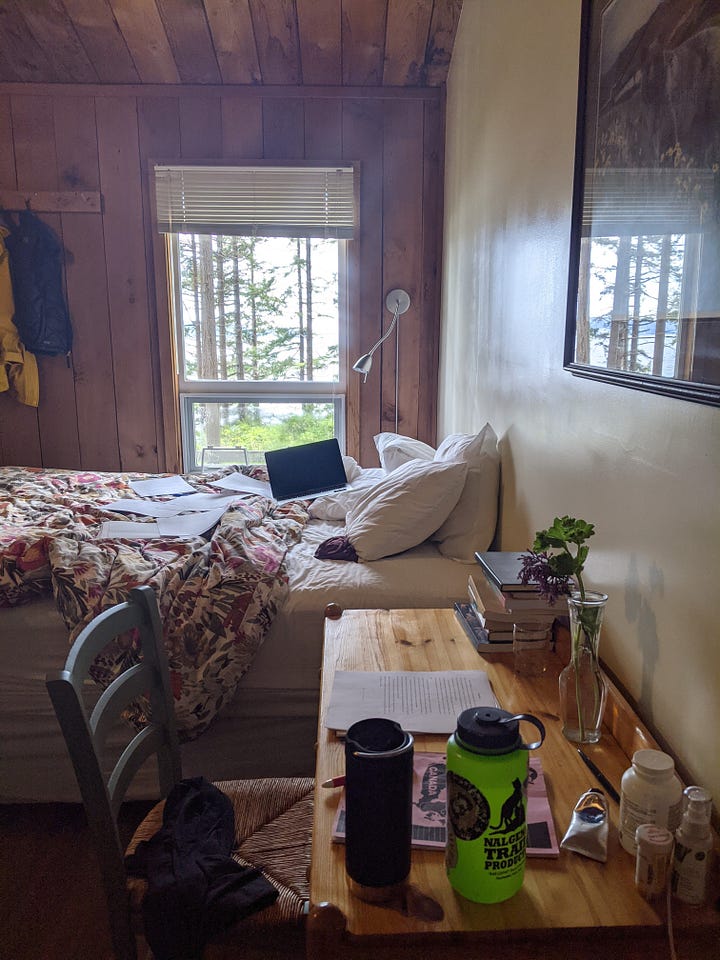
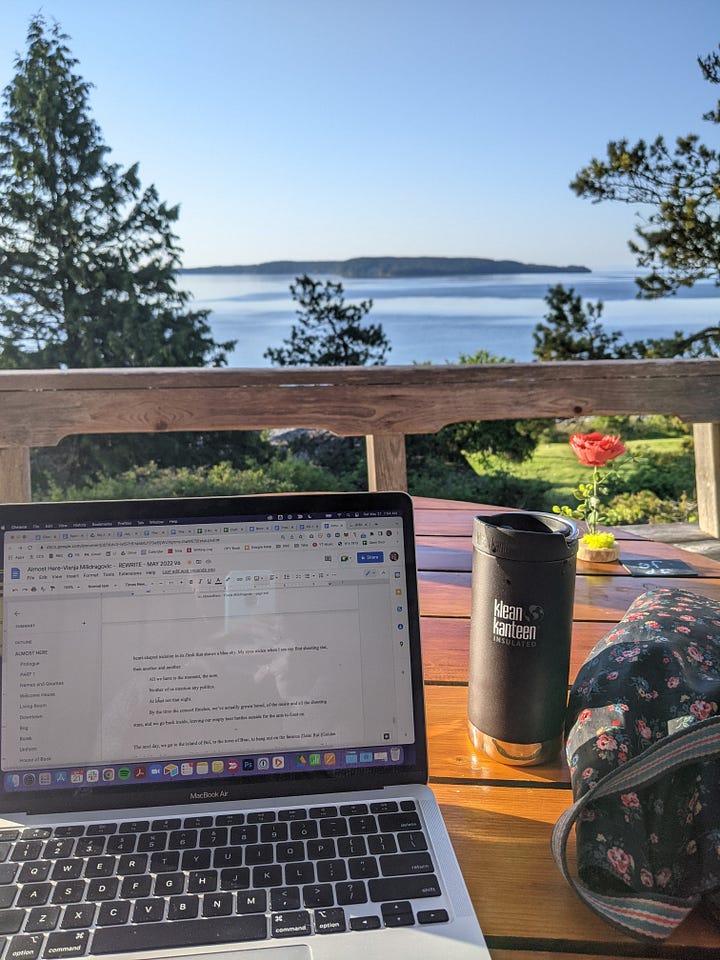
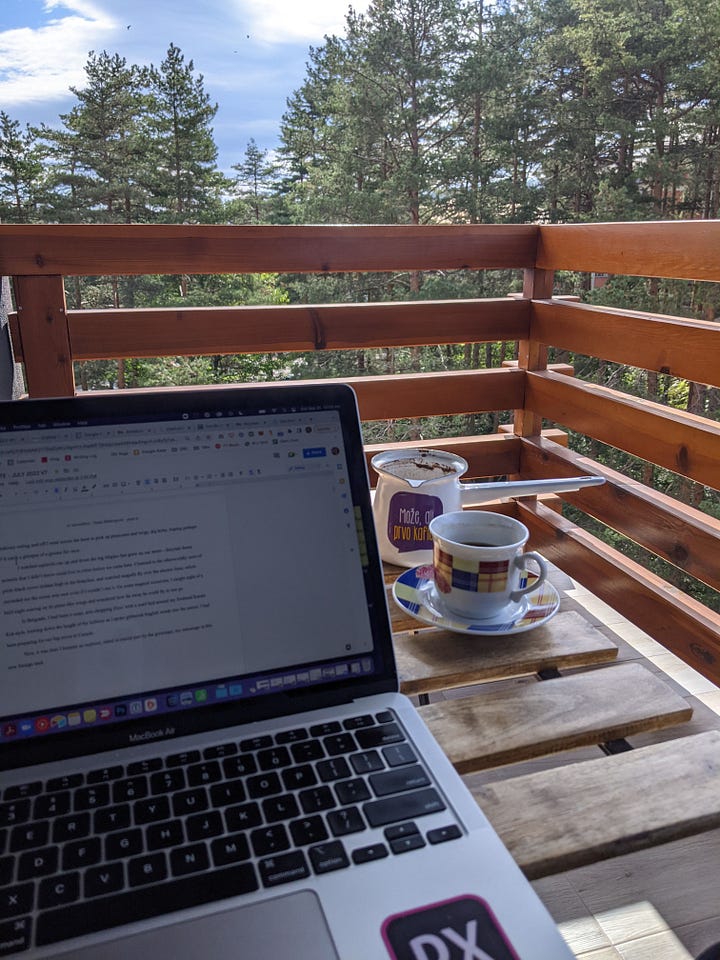
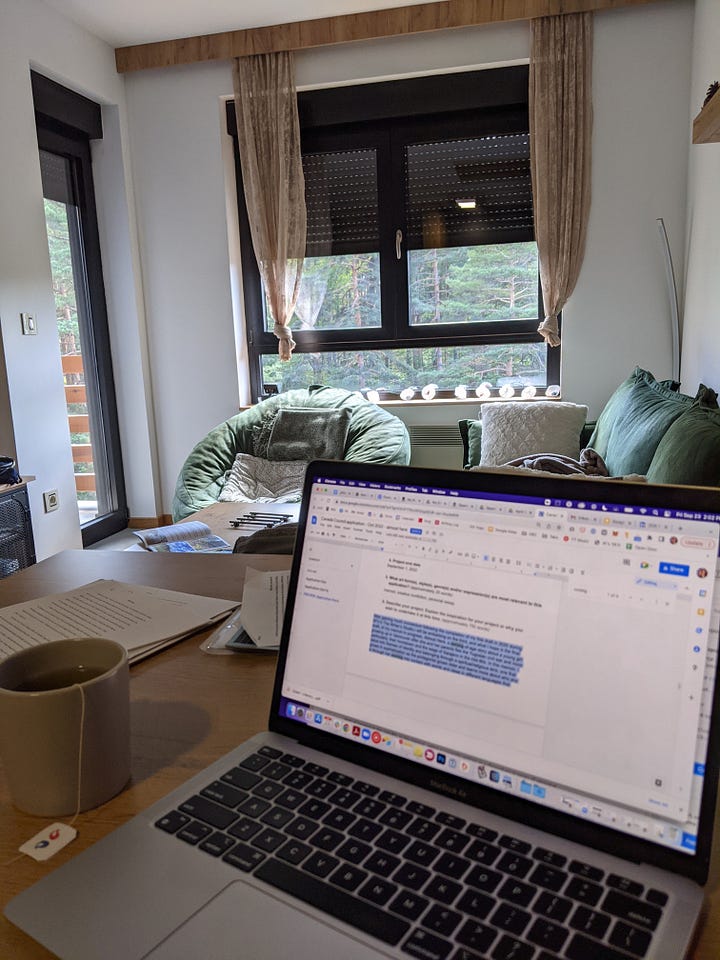
Since then, my writing retreats have turned more local. I commit to going once or twice a year for about 5 or 6 days each time, usually to the Sunshine Coast. It’s the reason my manuscript is where it is today and why it will be ready to be shared with the world so very soon.
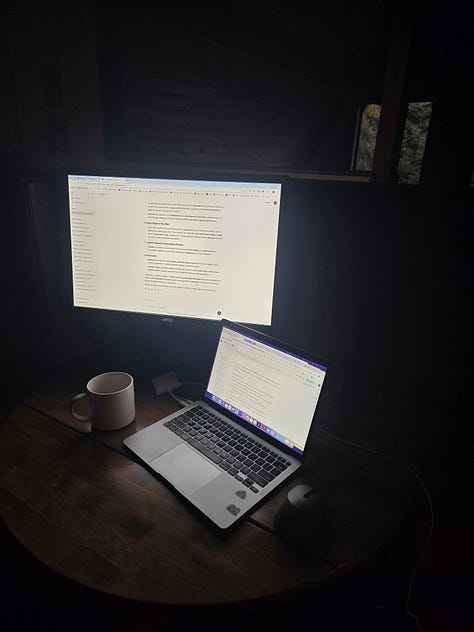
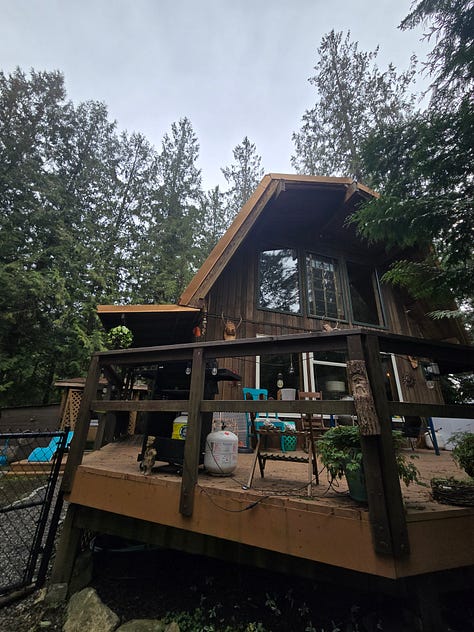
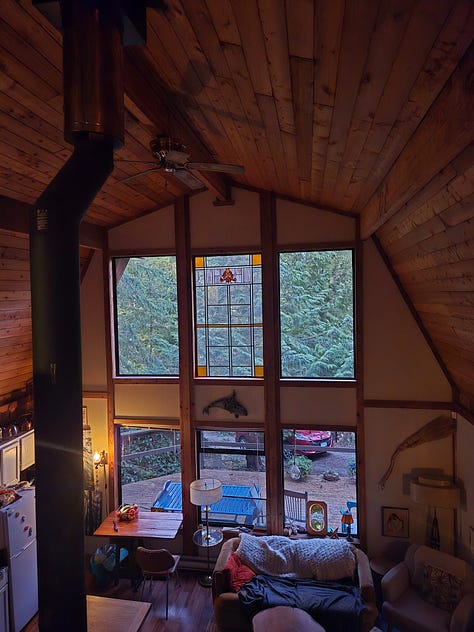
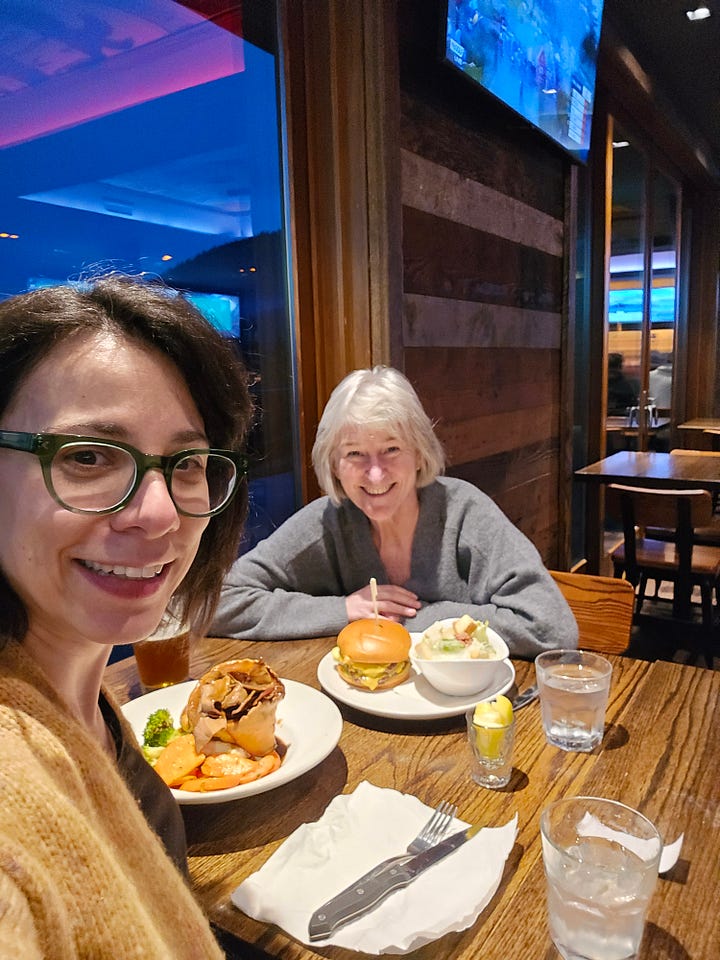
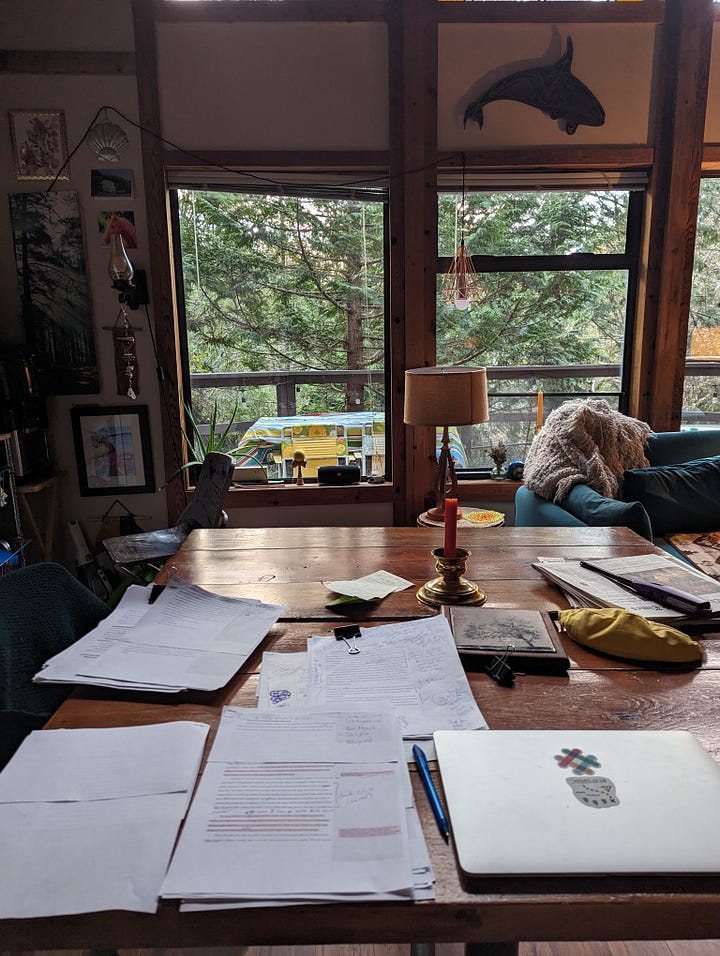
I give credit to the writing routine I’ve perfected. It feels fool-proof. It never guides me astray.
Wake up before 7:30 am. Do not speak to anyone or look at my phone. Ideally, it’s the crack of dawn and as I wait for the kettle to boil, I can see the blueness of the day emerging with the morning light.
Eat a hearty breakfast: oatmeal with yogurt and my pre-mix of chia seeds, hemp hearts, raisins, and flax.
Write for 4 hours. My sweet spot, when my mind is clear and the room is quiet, is four hours. I may be in direct correlation with how long the oatmeal fuels me. But it may be something else. I don’t question it. Sometimes I lift my head two-hours in wondering can I really keep going? The answer is always yes. There are always two more hours left in me.
Eat a protein-packed lunch (an egg sandwich is ideal) then go for a 40-min brisk walk. My friend and realtor Willo offers up her cabin on the Sunshine Coast to me for a cheap price. It comes with every comfort I need or want (including a hot tub!) but also basic and rustic enough that it doesn’t invite distraction. There is a trail that goes around a nearby lake just up the street as well as a ‘town centre’ which is a twenty minute walk away. I alternate between these two destinations.
Return to writing for at least two hours. Maybe another four. The afternoon is much like the morning, except that by then I am deep into a problem I am trying to resolve in the narrative or coming into contact with something (or a few somethings) that are challenging and slowing me down. I’ve probably spent my lunch time pondering this consciously or subconsciously.
At about the two-hour mark, I begin to consider: Can I really resolve this today? Or should it wait until tomorrow? I follow instinct. I know if I can do it. And if I can, I do, but then an even greater challenge usually follows the triumph. I think this is in direct correlation with how tired I am. I stop, now having met my goal for tomorrow.
This routine emerged somewhat organically over those days I spent in Zlatibor. While it has some lee-way, it reads quite rote. And I admit, I like it that way. It reminds me that this work is creative but that it also requires endurance, stamina, and discipline. It’s not enough to feel the passion. We have to fuel it continuously, like a beautiful little monster. It needs to feed and rest and get exercise. It needs a routine it can count on so that it can grow into all its glory.
xx
Vish

